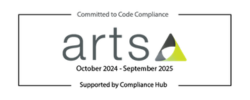NHS staff to be trained to spot rare form of diabetes
)
Hundreds of healthcare professionals will soon be able to test for a rare type of diabetes thanks to the roll-out of a new national training programme.
There are thought to be thousands of people who are unaware they have monogenic diabetes, which can be difficult to manage if left undetected. People who don’t know they have the condition often find it difficult to control their glucose level and if left untreated for a long period of time, it can lead to blindness, amputation and an increased risk of heart attack.
Dedicated teams of monogenic diabetes experts will be set up across NHS trusts in England to improve the lives of those living with the condition, and hundreds of healthcare professionals will be trained to spot it.
The new genetic testing can also show whether or not children will go on to develop the condition by checking to see if they have inherited the affected gene.
Monogenic diabetes makes up one in 50 cases of diabetes, but it is much more difficult to identify and is often hard to differentiate from type 1 or type 2 diabetes.
People who are diagnosed with monogenic diabetes can make changes to their diet or take medication to regulate their glucose levels and avoid the need for regular insulin injections.
Professor Partha Kar, NHS National Specialty Advisor for Diabetes, said: ''We are already making progress against the goals set out in the NHS Long Term Plan for better diabetes care, and the rollout of this programme will mean more patients across the country will benefit from access to specialist genetic testing and optimised treatment.''
''Monogenic diabetes is difficult to diagnose, and we will more easily be able to identify those who need to be referred for genetic testing by training teams on monogenic diabetes in each Trust.''
“The NHS has long been at the forefront of clinical advances in care for major diseases like diabetes – being able to spot the condition from birth is just another example of how we are helping people with the condition to live longer and healthier lives.”
The training scheme is run by the NHS England Diabetes Programme and the NHS Genomic Medicine Service.
Professor Dame Sue Hill, Chief Scientific Officer for England and Senior Responsible Officer for Genomics in the NHS, said: “I’m delighted we’re rolling out this initiative which will no doubt be welcomed by the thousands of patients who’ll benefit from being able to access genetic testing for monogenic diabetes and the personalised treatment interventions.''
“The NHS continues to lead the way in using the latest genomic technology and this is a great example of how genomics can help diagnose, inform treatments and deliver improved outcomes for patients. It shows how the NHS is delivering on the commitments set out in the NHS Long Term Plan to increase access to genomic testing.”
Head of Care at Diabetes UK, Dan Howarth said: “The rollout of this programme is a significant and hugely positive development.''
“It will help ensure people will get the most appropriate treatment and support for this rare type of diabetes, meaning blood sugar levels can be better managed, and the risks of developing the devastating complications of diabetes can be reduced. As this form of diabetes runs in families, other family members can be informed of the symptoms to look out for, to enable timely treatment and support.”
Health Minister Nadine Dorries said: “We are dedicated to improving care for those with diabetes – a commitment we have built on through the NHS Long Term Plan – and this latest cutting-edge innovation will have a positive impact on thousands of patients and families.”
Your toolkit for accurate diagnosis in diabetes
11th November - 13:10 - 13:40
Speaker: Shivani Misra



)
)
)
)

)
)
.jpg/fit-in/1280x9999/filters:no_upscale())
.png/fit-in/1280x9999/filters:no_upscale())
)
)
)
